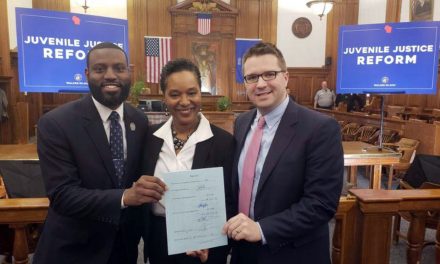
Governor Tony Evers formally directed Department of Health Services (DHS) Secretary-designee Andrea Palm on March 24 to issue a Safer at Home order that prohibits all nonessential travel, with some exceptions as clarified and defined in the order, to stem the continued spread of COVID-19 in the state.
The order is effective at 8:00 am on Wednesday, March 25 and will remain in effect until 8:00 am Friday, April 24, or until a superseding order is issued. Without changes to limit the spread of COVID-19, models show that up to 1,000 people in the state could die and more than 22,000 would contract the virus by April 8, exceeding the number of hospital beds in the state, said state Department of Health Services Secretary Andrea Palm.
“I know the COVID-19 outbreak has been difficult and has disrupted the lives of people across our state. Issuing a Safer at Home order isn’t something I thought we’d have to do and it’s not something I take lightly, but here’s the bottom line: folks need to start taking this seriously,” said Governor Evers. “Each and every one of us has to do our part to help slow the spread of COVID-19 so we can flatten the curve to ensure our doctors, nurses, and healthcare workers have the opportunity to do their important work. Let’s all do our part and work together.”
Individuals do not need special permission to leave their homes, but they must comply with this order as to when it is permissible to leave home. Similarly, if a business is an Essential Business or Operation as defined in this order, it does not need documentation or certification to continue its work that is done in compliance with this order.
Under this order, Wisconsin residents are able to:
- Perform tasks essential to maintain health and safety, such as obtaining medicine or seeing a doctor;
- Get necessary services or supplies for themselves or their family or household members, such as getting food and supplies, pet food and supplies necessary for staying at home;
- Care for a family member in another household; and
- Care for older adults, minors, dependents, people with disabilities or other vulnerable persons.
Businesses allowed to operate under the Safer at Home order include, but are not limited to:
- Health care operations, including home health workers;
- Critical infrastructure;
- Businesses that provide food, shelter, and social services, and other necessities of life for economically disadvantaged or otherwise vulnerable individuals;
- Fresh and non-perishable food retailers, including convenience stores, grocery stores, farmers’ markets, and food banks;
- Businesses that ship or deliver groceries, food and goods directly to residences;
- Pharmacies, health care supply stores and health care facilities;
- Child care facilities, with some limitations;
- Gas stations and auto repair facilities;
- Banks;
- Laundry businesses, dry cleaners and services necessary for maintaining the safety, sanitation and essential operation of a residence, including garbage collection;
- Hardware stores, plumbers, and electricians;
- Educational institutions, for the purposes of facilitating distance learning;
- Roles required for any business to maintain minimum basic operations, which includes security, and payroll; and
- Law and safety, and essential government functions will continue under the recommended action.
The order also contains detailed information regarding the exemptions provided to certain businesses. It comes as more cases of COVID-19 have been confirmed in Wisconsin. There were 416 confirmed cases in the state as of March 23.
© Photo
Lee Matz














